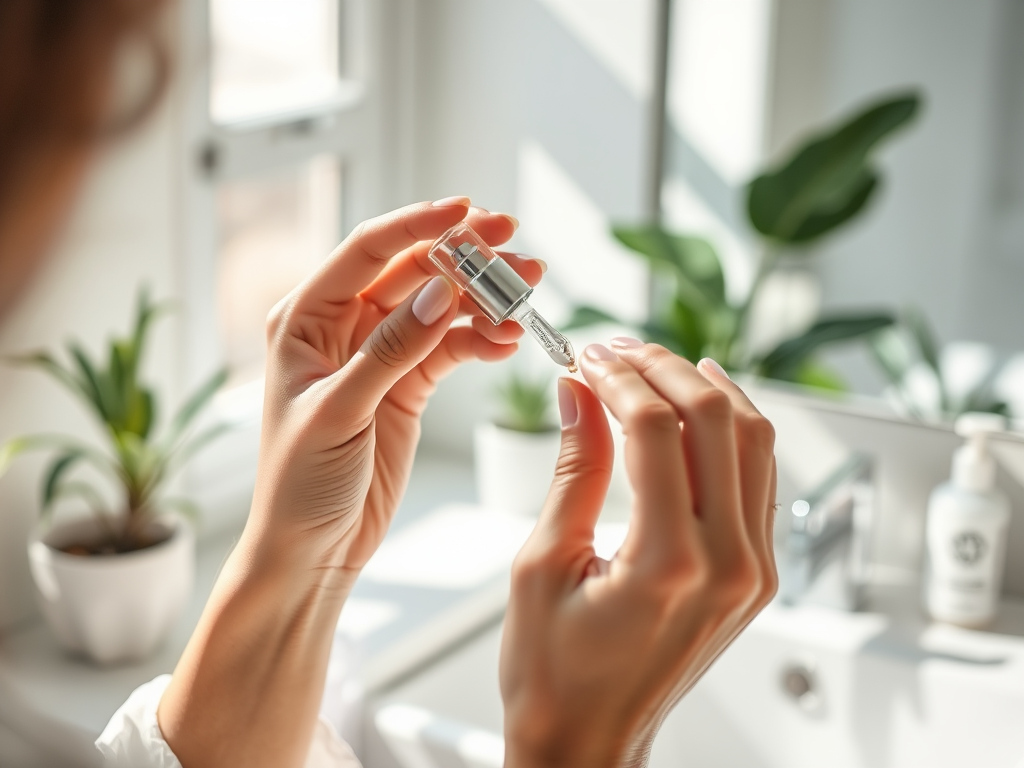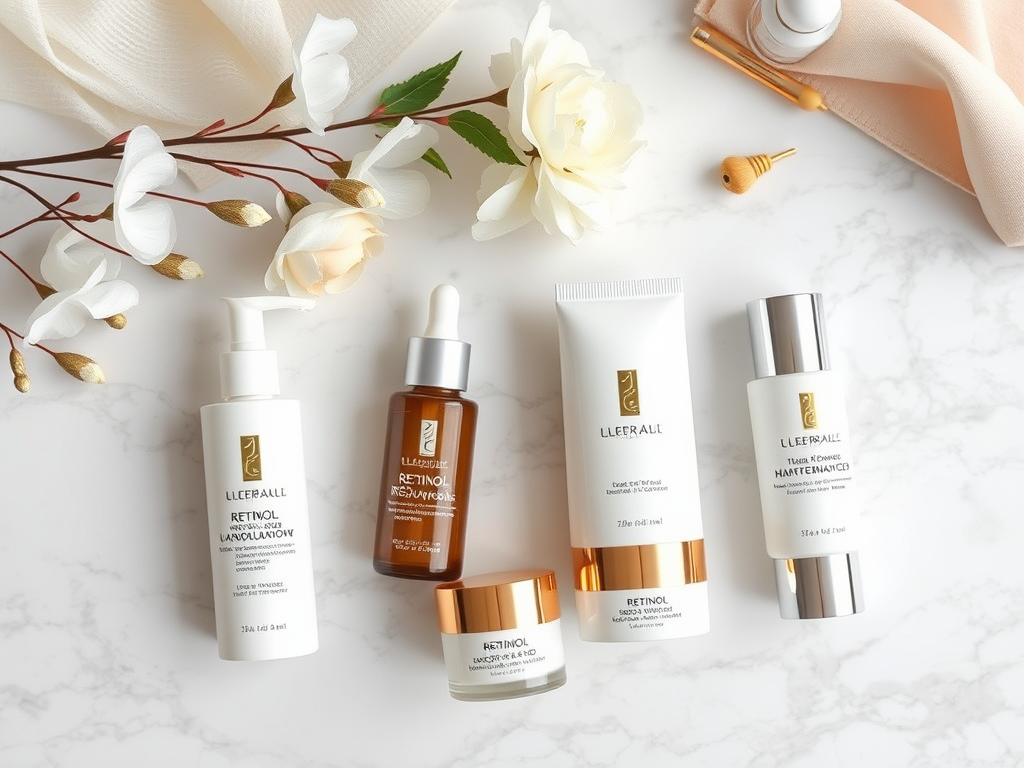
The Role of Hydration: Why Hyaluronic Acid is Essential When Using Retinol
The skincare world is evolving, and the combination of ingredients can drastically improve your regimen. Among the various active ingredients available, retinol has gained celebrity status for its transformative properties. However, with great power often comes great responsibility, especially when it comes to maintaining skin hydration. Retinol works wonders by promoting cell turnover and reducing the appearance of fine lines, but its potency can sometimes lead to dryness and irritation. This is where hyaluronic acid enters the scene, acting as a reliable ally in your skincare routine. Understanding the synergy between these two powerful agents will unlock the secret to radiant and healthy skin.
Understanding Retinol

Retinol, a derivative of vitamin A, stands at the forefront of skin rejuvenation. Its role in skincare extends beyond the surface, penetrating deeply into the skin to stimulate collagen production and enhance cell turnover. This action not only helps combat signs of aging but also can be a game-changer for those struggling with acne. As cells shed and regenerate more efficiently, the skin becomes smoother and more youthful. However, it’s essential to recognize that with these significant benefits comes the potential for skin sensitivity, particularly during the initial stages of use.
Utilizing retinol can yield various advantages for your skin, including:
- Reduction of fine lines and wrinkles
- Improvement in skin texture and tone
- Decreased appearance of large pores
- Effective management of acne and breakouts
- Minimization of dark spots and hyperpigmentation
Why Hydration Matters

Hydration is a cornerstone of effective skincare, influencing every aspect of skin health. When the skin is adequately hydrated, it showcases a plumpness and radiance that many covet. Conversely, dehydration can lead to a compromised skin barrier, triggering irritation, redness, and accelerated aging. This makes it clear that hydration isn’t merely a preference; it’s a necessity. Furthermore, a well-hydrated skin barrier contributes to an improved overall skin function.
A hydrated skin barrier acts as a shield, preventing external aggressors from penetrating the skin. This barrier ensures that moisture is retained effectively, thus reducing the risk of inflammation and irritation. A stable skin barrier is crucial when incorporating strong active ingredients like retinol into your routine. By ensuring that your skin is adequately hydrated, you set the stage for retinol to perform its best work, allowing the skin to thrive rather than merely survive.
The Role of Hyaluronic Acid
Hyaluronic acid is a powerhouse in the realm of hydration, known for its incredible ability to retain moisture. This natural compound can hold up to 1,000 times its weight in water, which is significant for maintaining skin elasticity and softness. Its lightweight texture allows for easy absorption, making it compatible with various skincare products. Notably, incorporating hyaluronic acid into your routine can significantly enhance the effectiveness of retinol. It delivers a surge of moisture, counteracting the potential drying effect of retinol while improving overall skin texture.
Here are some of the key benefits of hyaluronic acid:
- Provides intense hydration to the skin
- Reduces the appearance of fine lines and wrinkles
- Improves skin elasticity and firmness
- Soothes and calms irritated skin
- Enhances the absorption of other skincare ingredients
How Hyaluronic Acid Complements Retinol
Using retinol can sometimes come with dry patches or irritation, especially for those new to the ingredient. Hyaluronic acid serves to counteract these effects, providing that much-needed moisture and comfort to the skin. When used together, these compounds can usher in a new era of skincare benefits. For instance, while retinol encourages cell turnover, hyaluronic acid ensures that your skin remains hydrated and nourished, allowing the active ingredient to work without the uncomfortable side effects.
| Ingredient | Primary Benefits | Best For |
|---|---|---|
| Retinol | Anti-aging, acne treatment | Fine lines, uneven skin tone |
| Hyaluronic Acid | Intense hydration, plumps skin | Dehydrated skin, irritation |
Best Practices for Using Hyaluronic Acid with Retinol
To achieve optimal results when combining these two powerhouse ingredients, consider the following best practices:
- Layering Order: Always apply hyaluronic acid first on damp skin, followed by retinol.
- Start Slow: If you’re new to retinol, begin using it once or twice a week to build tolerance.
- Moisturize: Follow up with a moisturizer to lock in hydration after applying retinol.
Conclusion
Incorporating hyaluronic acid into a retinol-centric skincare routine is not just beneficial, but essential for maintaining skin hydration and health. By understanding how these ingredients work together, you can achieve the radiant, youthful skin you desire without compromising comfort or effectiveness. Prioritizing hydration transforms your skincare journey into a balanced experience that addresses both the immediate and long-term needs of your skin. Embrace the synergy of retinol and hyaluronic acid, and enjoy the lasting benefits they provide.
Frequently Asked Questions
- What is retinol used for? Retinol is used for reducing fine lines, treating acne, and improving skin texture.
- Can hyaluronic acid and retinol be used together? Yes, using them together can enhance hydration and minimize irritation.
- How often should I use retinol? Start with once or twice a week and gradually increase as tolerated.
- Is hyaluronic acid suitable for all skin types? Yes, hyaluronic acid is generally safe for all skin types.
- Will using retinol dry out my skin? It may cause dryness, which is why incorporating hyaluronic acid is beneficial.
Reading time 6 minutesThe skincare world is evolving, and the combination of ingredients can drastically improve your regimen. Among the various active ingredients available, retinol has gained celebrity status for its transformative properties. However, with great power often comes great responsibility, especially when it comes to maintaining skin hydration. Retinol works wonders by promoting cell turnover…